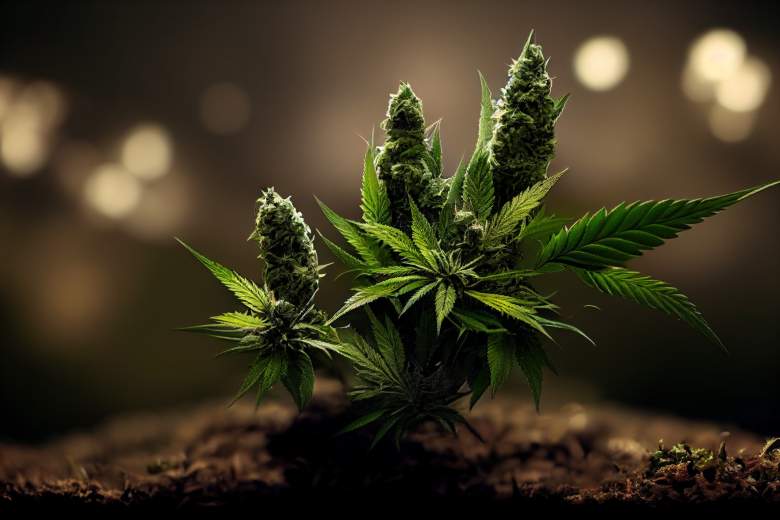The world of cannabis is always evolving, and as new cannabinoids are discovered and studied, we learn more about the complex interactions between these compounds and how our bodies react to them.
Two of the latest compounds to emerge onto the scene are Delta 10 and Delta 8, both of which have generated a lot of buzz. So, below, find the differences and similarities between Delta 10 and Delta 8, and provide a comprehensive overview of these exciting new cannabinoids.
What is Delta 10?

123RF
Delta 10 is a newly discovered cannabinoid that has only recently come to the attention of the cannabis community. It is a derivative of Delta 9 THC, which is the primary psychoactive compound in cannabis, but it has a slightly different chemical structure that produces unique effects.
Delta 10 has a similar chemical structure to Delta 8 and Delta 9 THC, but it has a double bond in a different position on the molecule. This subtle difference changes the way that Delta 10 interacts with the body, and produces different effects compared to other cannabinoids.
One of the most notable effects of Delta 10 is its energizing and uplifting properties. Users report feeling more alert, focused, and productive when using Delta 10, making it an ideal cannabinoid for daytime use. Additionally, Delta 10 is believed to have anti-inflammatory properties, making it useful for managing pain and reducing inflammation in the body.
In What States is Delta 10 Legal?

123rf
As of March 2023, the legality of Delta 10 THC is not yet clear or widely established, and it is not legal in all states in the US. It is important to note that the legal status of Delta 10 is subject to change and consumers should always verify the current laws in their state before purchasing or using any Delta 10 products. Here is what is currently known about the legality of Delta 10 in the US:
- California
- Colorado
- Michigan
- New York
- Oregon
- Texas
- Washington
How is Delta 10 Consumed?
Like cannabis, Delta 10 comes in many consumable forms, including Delta 10 carts, distillate, tinctures, edibles (including gummies), disposable vape cartridges, flower, and concentrates.
Can Delta 10 Get You High?
Yes, delta 10 will produce a high of sorts, albeit a less intense high than you’d likely get from delta 8 (or delta 9).
What is Delta 8?
Delta 8, on the other hand, is a cannabinoid that has been known for some time, but has recently gained popularity as a legal alternative to Delta 9 THC. Like Delta 10, Delta 8 is a derivative of Delta 9 THC, but it has a slightly different chemical structure that produces unique effects.
Delta 8 has a double bond on the 8th carbon chain of the molecule, which changes the way that it interacts with the body. While Delta 8 is still psychoactive, it is much less potent than Delta 9 THC, and produces a milder high that is often described as more relaxing and calming.
In addition to its psychoactive effects, Delta 8 has been found to have a number of potential therapeutic benefits. It is believed to have anti-nausea properties, making it useful for managing symptoms of chemotherapy and other medical treatments. It is also thought to have pain-relieving properties, making it useful for managing chronic pain and inflammation.
In What States is Delta 8 Legal?

123RF
Delta 8 is federally legal in all states. However, some states have begun restricting its distribution. Here are the states in which Delta 8 THC is currently legal:
- Alaska
- Colorado
- Delaware
- Idaho
- Iowa
- Montana
- New York
- Nevada
- North Dakota
- Oregon
- Rhode Island
- Vermont
- Utah
- Washington
How is Delta 8 Consumed?
Like cannabis, Delta 8 comes in many consumable forms, including Delta 8 edibles, distillate, tinctures, carts, powder, disposable vape cartridges, flower, and concentrates.
Can Delta 8 Get You High?
Yes, Delta-8 can get you high. In fact, there is growing concern by the FDA that too many people are getting ‘unintentionally too high’ from Delta-8.
Delta 10 vs. Delta 8
While Delta 10 and Delta 8 share some similarities, there are also some key differences between these two cannabinoids.
Differences Between Delta 10 vs. Delta 8
- Chemical structure: Delta 10 and Delta 8 have slightly different chemical structures, which changes the way that they interact with the body. Delta 10 has a double bond on the 10th carbon chain, while Delta 8 has a double bond on the 8th carbon chain.
- Psychoactive effects: Delta 10 is known for its energizing and uplifting effects, while Delta 8 is known for its more relaxing and calming effects.
- Potency: Delta 10 is more potent than Delta 8, meaning that users may require less of it to achieve the desired effects.
- Legality: While Delta 8 is legal in many states in the US, Delta 10 is not yet widely available and its legality is still somewhat unclear.
Similarities Between Delta 10 vs. Delta 8
Despite these differences, there are also some key similarities between Delta 10 and Delta 8, including:
- Chemical makeup: Both Delta 10 and Delta 8 are derivatives of Delta 9 THC, and they have similar chemical structures. This means that they interact with the body in similar ways, and produce similar effects to some extent.
- Potential therapeutic benefits: Both Delta 10 and Delta 8 have been found to have potential therapeutic benefits, such as anti-inflammatory and pain-relieving properties. Additionally, Delta 8 has been shown to have anti-nausea properties, which makes it useful for managing symptoms of chemotherapy and other medical treatments.
- Availability: Both Delta 10 and Delta 8 are relatively new to the cannabis scene, and their availability is somewhat limited. While Delta 8 is becoming more widely available as a legal alternative to Delta 9 THC, Delta 10 is not yet as widely available and its legality is still somewhat unclear.
While Delta 10 and Delta 8 share some similarities, such as their chemical makeup and potential therapeutic benefits, they also have some key differences, such as their psychoactive effects and potency. Those who are considering trying Delta 10 or Delta 8 should proceed with caution and consult with a healthcare professional before using these substances.